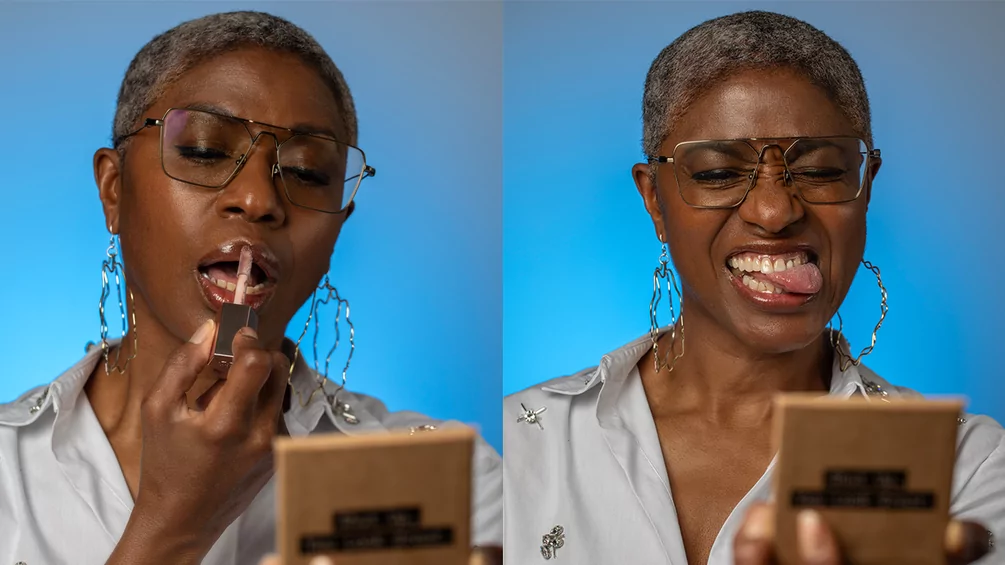
Changing minds and challenging attitudes was the calling card of every woman of colour who stood proud behind the decks of some of the most iconic parties in the UK. We women were DJs first – known for the music we played and the style we played it with. The look was strong but also secondary. I worked an androgynous persona and exuded a fierce attitude that stood out from the smiley culture, flowing locks and baggy rave style. My shaved head started in 1989, continued as a university economy, then was fine-tuned after attending the Vidal Sassoon student night for a free haircut. Nick Arrojo and Peter Gray both perfected my rough space-age-meets-tribal look. My singular style (in Manchester terms anyway) soon transported me to a world of catwalk modelling and fashion shoots for local designers like Gio Goi and Consalvo Pellecchia.
One evening at home in my mum’s Fallowfield sitting room, my friend Simon Bushell presented me with an advert that he had cut out of the local newspaper. Granada TV were auditioning for presenters for a new show called Juice. It was a lifestyle culture magazine programme which would be in scheduling competition with Terry Christian and Dani Behr’s The Word on Channel 4. It was aimed at the prime-time youth market with an 18–30 demographic. I applied, as did hundreds more. I was amazed when I received my letter for the recall and elated when I got the job presenting alongside Tara Newley19 and Johnny Dangerously.
At twenty-three years old, Janie Valentine was the youngest producer with Granada TV. From 1993 to 1994 she was responsible for the team who created Juice. Flying in the face of the homophobia created by the Aids campaign, programmes such as this heralded the start of positive images of gay culture entering this broadcasting medium. Nowadays we have Gentleman Jack, It’s a Sin, Sex Education and Banana on lock. The legislative aftershocks of Section 28 that prohibited the promotion of homosexuality by local authorities were not repealed until 2004. Prior to this, anything gay on TV was considered an advertiser’s graveyard like Soap, terrifying (the Aids campaign), shocking (The Naked Civil Servant) or crass, camp and a send-up like Dick Emery in bad drag – Liverpool comedian Kenny Everett dressed as Dolly Parton with a beard or John Inman in Are You Being Served? Dramas such as Russell T. Davies’s Queer as Folk and the adaptation of Armistead Maupin’s Tales of the City, which became the must-watch cult programmes of the decade, were the exception. While a regional programme, Juice played its part in this explosion of queer culture, running features on Flesh, Manchester’s drag scene, the launch of Paradise Factory, and comedy from Lily Savage20 just after the watershed. It was fun, sexy, irreverent and anarchic. It featured a clubby soundtrack with lots of house music and live appearances, and put me, a bald, Black, queer, female presenter on primetime TV every Friday night at 9 p.m. Groundbreaking.
